by Derek Davison
Fear was the word of the day at the American Enterprise Institute on Wednesday, as former Vice President Dick Cheney talked about the nearly infinite number of grave threats he sees confronting the United States. Greeted by a standing ovation from the attendees, Cheney spent the bulk of his roughly 30-minute remarks listing those threats and championing a much more hawkish American response to all of them.
Regarding the most immediate threat, the Islamic State or ISIS (“the situation is dire,” he commented), Cheney had suggestions for President Barack Obama—if you consider “recognize ISIS as a strategic threat” a suggestion. Cheney supported a commitment of additional arms, troops, advisors and trainers to Iraq, as well as “immediate, sustained action” in Syria. What form that action should take, and how it should be implemented without helping Bashar al-Assad (who Cheney also cited as a significant threat) or Iran (ditto), was not addressed in Cheney’s remarks. It probably goes without saying that the former vice president ignored the role his own administration’s ill-fated war on Iraq played in creating the ISIS threat in the first place. Nor did he spend any time engaging the reasoned argument that the Islamic State currently represents only a potential threat to the United States—not a realized, let alone “dire,” one.
If you’re trying to keep score at home, Cheney suggested at various points in his speech that America ought to commit substantial military forces toward countering threats in Iraq, Iran, Syria, Egypt, Yemen, Pakistan, Somalia, Nigeria, and Afghanistan, with no particular sense about which of these should take priority over the others. Oh, and maybe in Ukraine as well; that part wasn’t as clear.
At this point, Cheney is effectively the living, breathing embodiment of Maslow’s Hammer, only instead of a hammer his tool is an overwhelming commitment of American military forces—so to him every problem looks like an existential threat to the United States. Again and again he leveled harsh criticism at the Obama administration, particularly Obama himself, for failing to appreciate the magnitude of the many dangers America faces. He chided Obama for declaring in a 2012 speech that “the tide of war is receding,” a quote that must seem almost as untimely as Cheney’s 2005 declaration that the Iraqi insurgency was “in the last throes, if you will.” We were, but they weren’t.
Cheney also criticized the administration’s treatment of America’s Middle Eastern allies, noting in particular a perception in the region that the United States is working with the Muslim Brotherhood. This is a popular conspiracy theory in military-led Egypt and other regional anti-MB countries, and is rooted in a deliberate misreading of the administration’s initial response to the Arab Spring, when it tentatively supported democratization efforts even if they meant that moderate Islamist political parties would be the immediate winners. In reality, the US made a decision to accept the results of whatever elections the Arab Spring produced, not ally itself with the Muslim Brotherhood—but don’t try and tell that to Egyptian state-controlled media.
This is a policy, by the way, that regional experts now say the administration has dropped, and not for the better; the Arab Spring’s failure to bring about widespread democratic change in the region has actually empowered both Islamic extremists like ISIS and the authoritarian regimes opposing them.
Cheney characterized the Muslim Brotherhood as “the ideological source for most of the radical Islamist terrorists around the globe,” particularly Egyptian Islamic Jihad (EIJ) and through it, al-Qaeda. This reading of history glosses over the fact that EIJ broke offfrom the Muslim Brotherhood over the latter’s commitment to nonviolence and to gaining power through peaceful means. Moderate Islamist political parties like the Brotherhood may not be ideal conduits for American interests in the region, and they can govern in anti-democratic ways, but when they are outlawed or suppressed those among them who support peaceful political change are only driven into extremist camps and potentially more violent organizations. And no matter how much the Muslim Brotherhood has been suppressed, it has always found a way back.
Speaking of Egypt, Cheney especially zeroed in on the administration’s response to the 2013 coup that toppled Egypt’s nascent democracy and brought back Mukbarak-era deep state governance, contending that America should have ignored the coup (which it pretty much did) and worked to strengthen ties with coup leader and now elected (well, sort of) Egyptian President Abdel Fattah al-Sisi. This, Cheney said, would have strengthened security in the region and diminished any talk that the US and Muslim Brotherhood were in cahoots. Cheney also remarked that he was “very impressed” with Sisi, which seems odd given that he was talking about a man who is responsible for the deaths of over a thousand of his fellow Egyptians, but there’s no accounting for taste.
Cheney also spent a considerable portion of his speech railing against cuts to the Defense budget, which is understandable given that he’s backing military commitments in at least ten different countries. He noted, for example, that “other major powers are seriously adding to their military capabilities” (maybe someday one of them will spend as much as half of America’s annual defense budget) while the US is making “irrational budget cuts” to its capabilities. Of course, it’s hard to take this argument seriously when the US is prepared, for example, to throw $1.5 trillion at an aircraft system that may be needed but definitely doesn’t work). Then again, if all you have is a hammer, it makes sense to seek the biggest hammer money can buy.

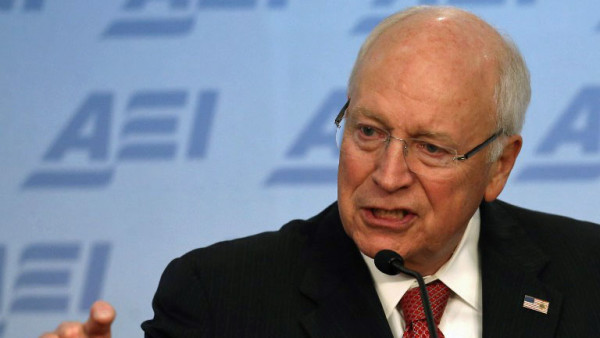
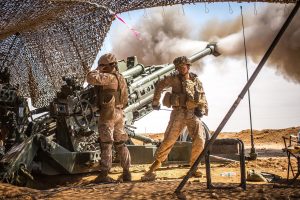
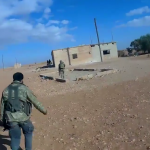
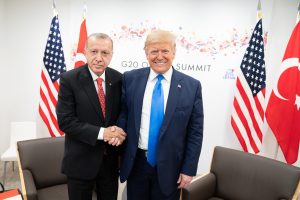
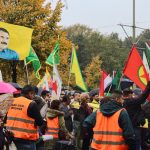
Why anyone would listen to this man, is beyond me. The same one who couldn’t serve his country in the military, but has shown and keeps on showing his willingness to sacrifice others lives to the ultimate position. Make war=making profits, only if you happen to be on the inside. Desperate times, bring these insane idiots out of the closet, only their ideas are like a cancer, which I’m afraid only radiation treatment will cure. “Z, K, C, the big 3”, along with their “sycophants”, giving advice, which if followed, would truly destroy what’s left of the U.S. These men are traitors to the very country they supposedly serve[d], but then, they do have split personalities, loyalties included, and the American taxpayer isn’t one of those on the list, except to be exploited. At least the American people and the rest of the civilized world understand where these are coming from, and if they had their way, it would be the dark side. I do have one question: “why are we subject to the ramblings of these people, when we know they belong behind bars if not in padded cells”?
What more can you say about Dick Cheney that’s not already been said? Except to say he was a Schlitz Lite fan during his VP years. I recall reading he liked to pound a these back during downtime or whenever he was flying and giving off the record interviews.
As an aside I wonder if the Schlitz beer company ever considered him as a celebrity endorser? What’s the policy on this? Can former presidents or vice presidents take on endorsement deals after their time in office? A better question to ask is would Schlitz want to be associated with him, given how bad things have worked out?
But let’s say the Iraq war was a great success and Dick Cheney is celebrated today as the grand old man of DC politics. He could have rode off into the sunset as the Schlitz Lite guy.
I wonder why anyone sane should listen to a crazy warmonger who was one of the prime evils that created the current calamity. Once an idiot, always a cracked! When a traitor to humanity, forever a turncoat to manhood. Formerly a warmonger, persistently a belligerent.
The coup plotters at American Enterprise Institute are in the leagues of Mr. Cheney!